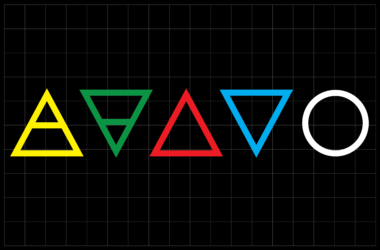The Importance of Knowledge as a Product
Let’s take a step back into 2008. Javascript was still pretty terrible, jQuery was mistaken for a better language, while we, at Media Temple, were launching our first custom-tailored help center to provide better support to our customers. The platform, named “Media Temple KnowledgeBase”, was, at the time, as cutting-edge as it could be. It had snazzy features like flashy, gradient backgrounds and overly-detailed (coined “Morpheus” language by our UX team), wiki-esque tool-tips. It was so modern it even had no space between the words but an uppercase “B” for “Base”.
In all seriousness, the KnowledgeBase was a fantastic tool for both our customers and support agents. While the former were able to search questions and browse categories on a reliable and trustworthy website, not random forums or wikis, the latter were able to walk them through the steps with screenshots, and even refer videos for further off-call troubleshooting. This is essential when a customer has been working on the same problem for hours and hours without resolve, frustrated and at wits’ end. In a time where it was basically impossible to sync your email with your phone, our KnowledgeBase held the answers and did so with ease and style.
But we hadn’t yet discovered the incredible potential our browsers were gaining, and we certainly weren’t “plugged into the matrix” yet as a society. While it made sense to have some features in the past, others were naturally included due to the technology available. Creating a UI in 2008 meant focusing on desktops instead of smartphones, as the web hadn’t yet metamorphosed into the social butterfly that lives in our back pockets today.
Today, users experience a vastly different web. Sites get explored by watches, cell phones, tablets, phablets, whatever-lets. The vast scope of content has created a savvy web user, one (subconsciously) more aware of what a poor user experience feels like, regardless of the device or platform. So our challenge was as follows: How do we make sure our KnowledgeBase stays in the ring while making our resource articles fully reliable and just as easily searchable on Google? Here is the answer we came up with: To fulfill its mission (i.e. providing all our current and future customers with access to all the info they need to better navigate our solutions), the next iteration of our KnowledgeBase had to be much more than a text-heavy platform with an accompanying step-by-step process. It had to be treated like a product and, as such, we had to make sure that 1/ it met our customers’ actual (and future) needs; and 2/ its value proposition stood out in the boom-and-bust web real estate.
Just like content creators need to make sure they are not going to bore their audience to death and/or overwhelm them with needless information, we asked ourselves who we wanted to help and how exactly we could provide the most value to all our customers. We also had to more clearly define which product the information was related to while minimizing possible navigation frustrations. Essentially, anticipate and solve hard problems with simple and easy answers.
On our drawing board we also decided to take our new “KnowledgeBase” one step further, beyond troubleshooting, and provide articles drafted by support agents themselves, in which users would be provided with a new, detailed exploration of our solutions. That way, we would make sure all Grid* users would know, right off the bat, they could deploy an application on the Grid. There was our value proposition: Our very own customer support agents diving deep into servers everyday, proactively uncovering new kinds of issues (and solutions) for our customers — as the saying goes, one man’s trash is another man’s treasure.
As a result (and I will go over the UX changes that we made in detail in a second article), we have turned our former KnowledgeBase into something far different from its original (and slightly outdated) intentions. With the growth of mobile browsers and social media environments, it can now be a guided conversation with our customers and the solutions and services they are usings.
Drawing inspiration from our own personal favorites and keeping in mind how we could best help our customers, we launched a brand new platform on 5/21: Please welcome Media Temple Community.
*Grid is our shared hosting solution on steroids. Learn more about the Grid.




